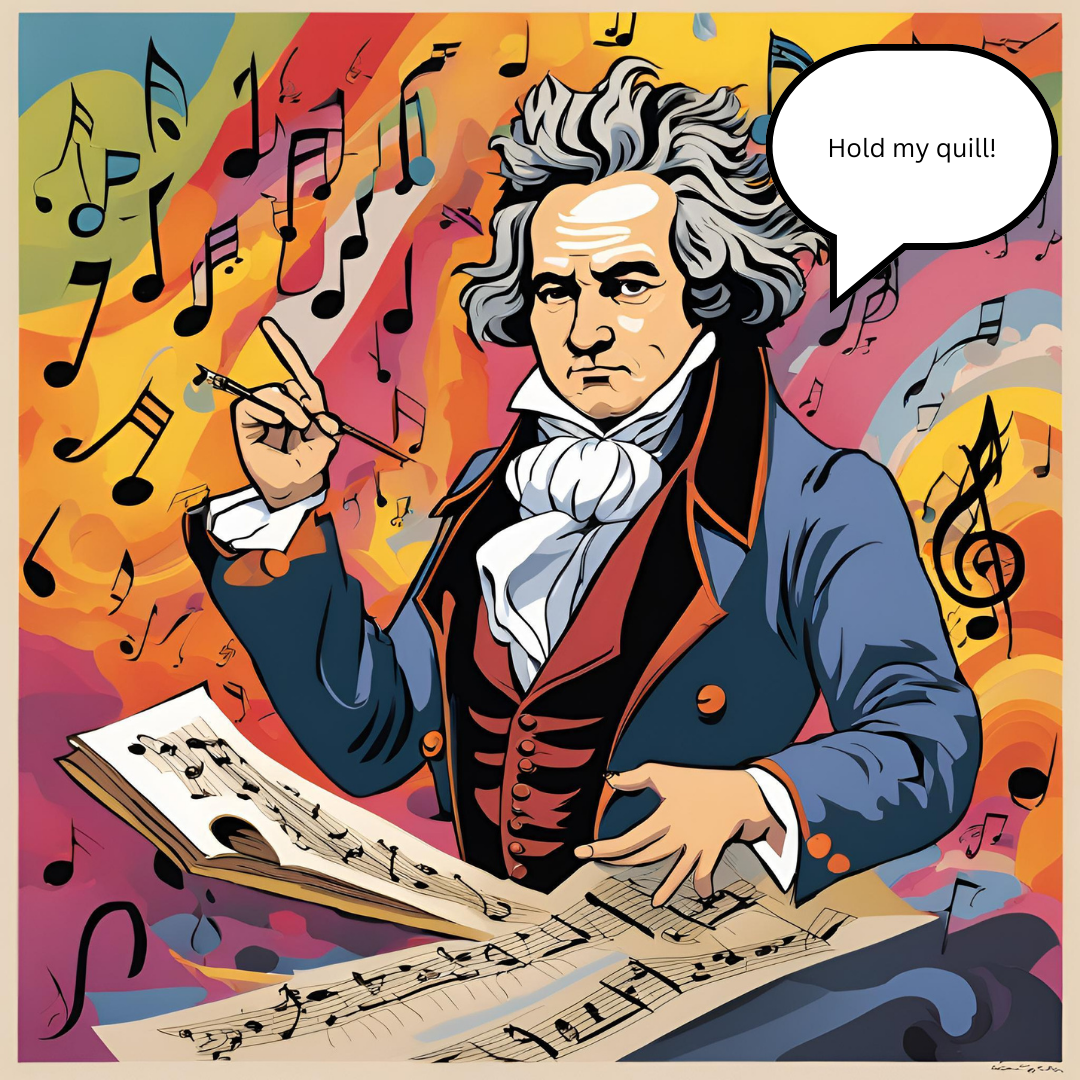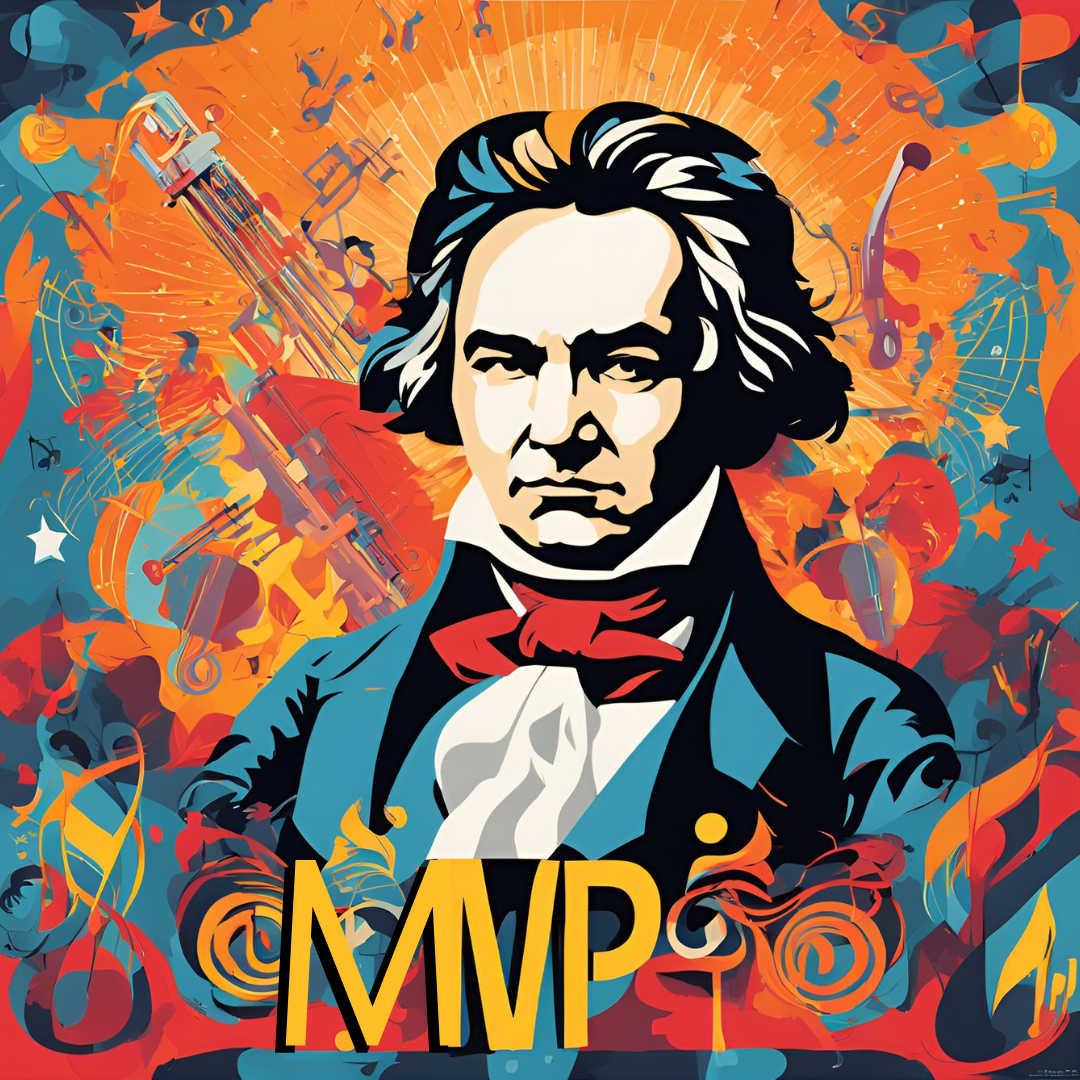Beethoven’sLife: The OG Classical Rockstar
Ludwig van Beethoven (1770–1827) was the statuestanding in the Arena of Western music. Imagine a guy standing between theClassical and Romantic periods like an epic musical bridge—yes, he is. Eventhough life hit him hard, the progressive deafness was the ultimate "Areyou kidding me?" moment for a composer. Beethoven just went, "Hold mybeer." By 1813, when he whipped up Wellington'sVictory, he couldn’t hear much, but his creative juices were flowing like aBeethoven symphony. This was during the Napoleonic drama-fest, and Beethovendecided to channel his inner action movie director—Napoleonic edition.

TheBackstory: Beethoven Meets the Boom-Boom Machine
So, here’s the tea: Wellington's Victory was written to celebrate the Duke ofWellington smacking Joseph Bonaparte at the Battle of Vitoria. Johann NepomukMaelzel—basically the Steve Jobs of the early 1800s—came up with a gadget toimitate battle sounds. He was like, “Hey Ludwig, wanna make this epic?”Beethoven said, “Hold my quill,” and turned it into a full-on orchestralbanger. When it premiered in Vienna, people lost their minds: it was likeBeethoven dropped the hottest single of 1813.

The War Drama: Napoleonic Netflix
The Battle of Vitoria was part of thePeninsular War (1808–1814), AKA the Napoleonic mess that just wouldn’t end.Picture the French strutting around Spain like they owned the place, only forthe Allies to go, “Not on our watch!” Beethoven’s music jumped on thispatriotism train, waving a metaphorical British flag and playing dramatic soundeffects that screamed, “Take that, Napoleon!”

MusicalBoom-Booms and Bang-Bangs
This piece isn’t subtle. It’s Beethovenbasically yelling, “War, but make it music!” The opening is a showdown betweenTeam Britain and Team France. Team Britain gets a heroic melody (complete withmusical chest-puffing), while Team France gets broody, “Uh-oh, we’re losing”vibes. Then, BAM—Rule Britannia! makes an appearance because nothing says“We’re awesome” like a musical victory lap. Beethoven didn’t hold back on thedrama. Cannons? Check. Gunfire? Check. Marching troops? Check. It’s like the1813 version of a Hollywood blockbuster, but with violins and trumpets insteadof CGI explosions.

MusicCritics Be Like...
Look, Wellington'sVictory isn’t Beethoven’s Symphony No. 9. Critics today love to call it"low-brow Beethoven," as if the man didn’t already give us Fur Elise.Sure, it’s a bit extra, but that’s what makes it fun! The percussion and brassare out here doing the most, while the woodwinds and strings are like, “Let’sadd some feels to this chaos.” Beethoven basically invented the concept ofcinematic music before movies even existed.

ThePublic Loved It
People ate this stuff up back in the day. Ithit all the right patriotic notes—literally—and gave audiences a chance tocelebrate Napoleon taking a massive L. Beethoven was the hero of the hour,getting invited to perform this work over and over. Sure, modern critics mightroll their eyes, but Beethoven didn’t compose Wellington's Victory to impress the highbrow crowd. He wrote it forthe vibes, the applause, and, let’s not kid ourselves, a nice paycheck on theside.
Wellington'sVictory is Beethoven flexing his skills at turningreal-world chaos into orchestral fireworks. It’s like if Beethoven scored abattle scene for an 1800s action flick, complete with epic explosions and avictorious soundtrack. Sure, it’s not his deepest work, but who cares?Sometimes you just need cannons, patriotism, and a lot of loud noises to getthe crowd going. Beethoven knew that—and he delivered like the musical MVP he was.
